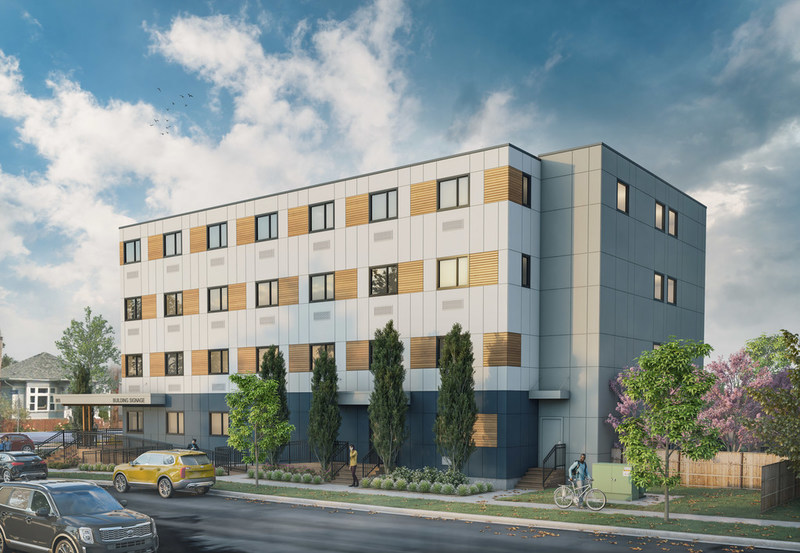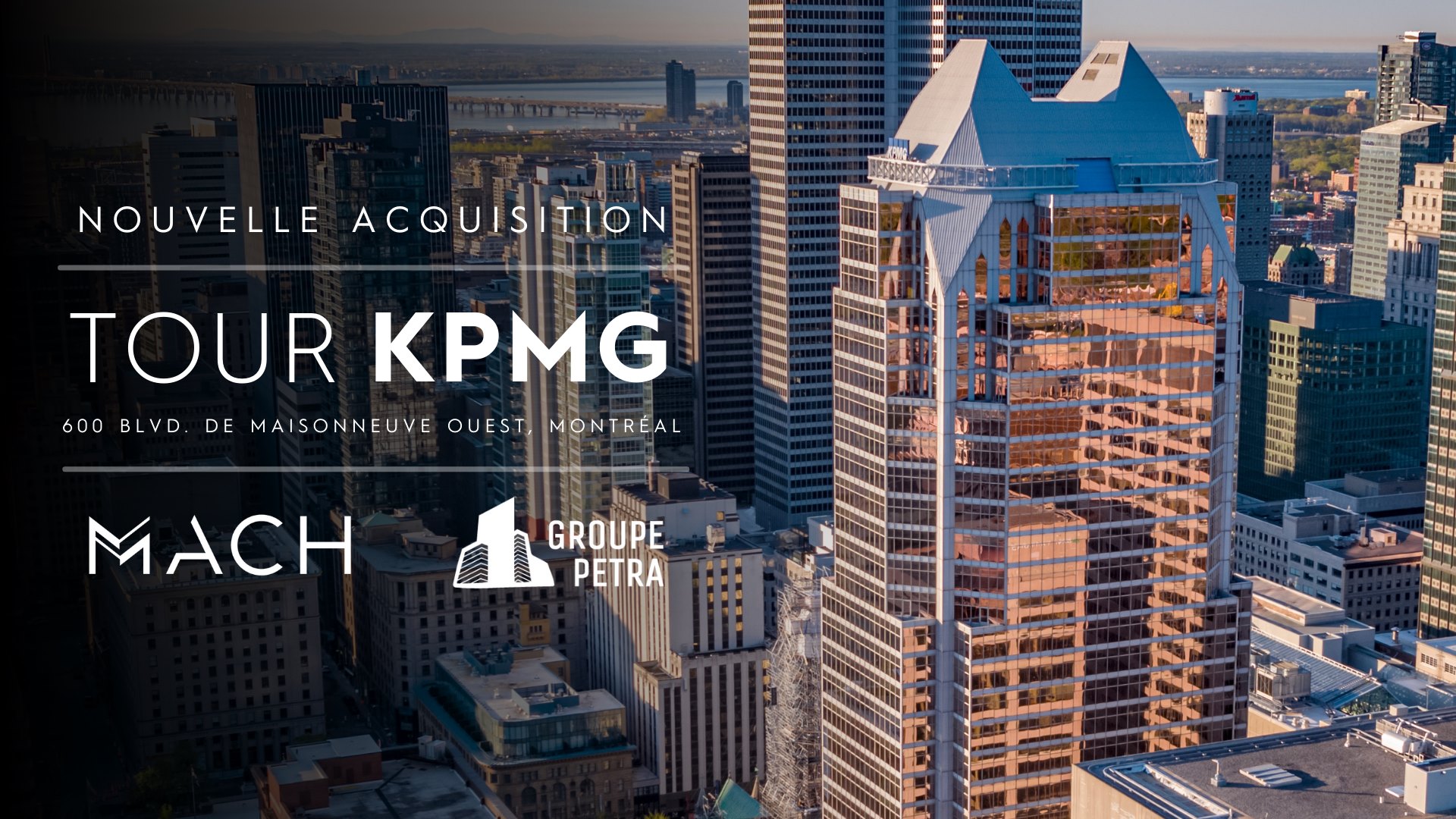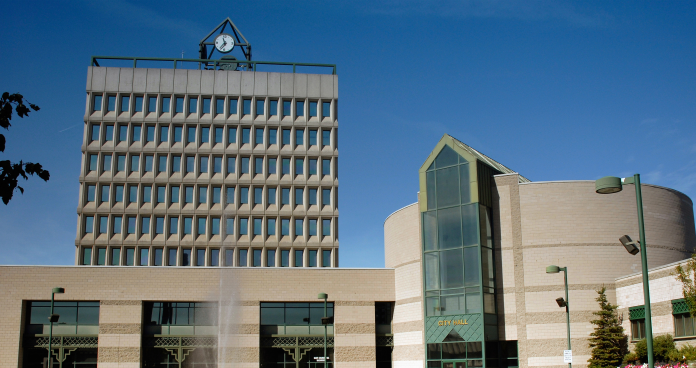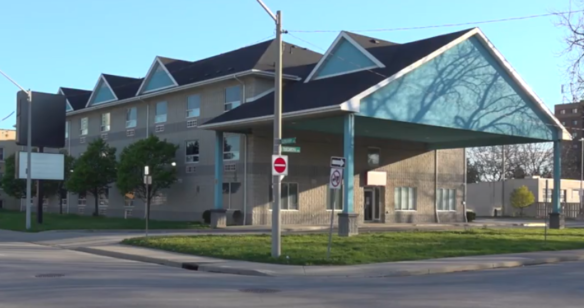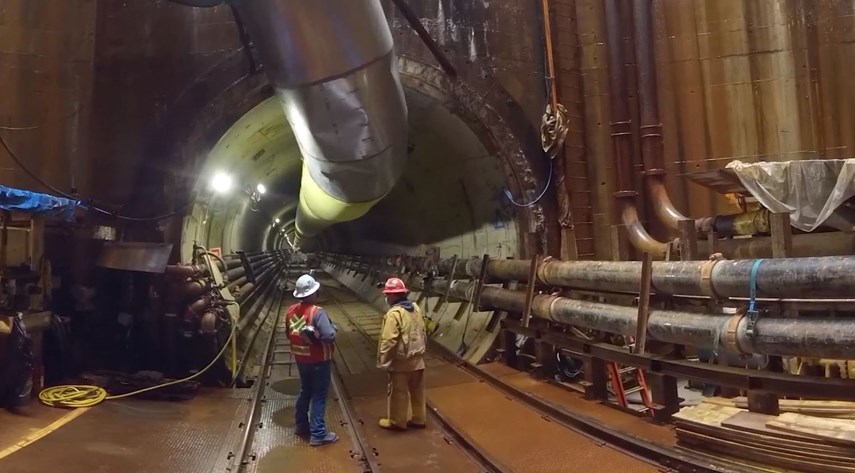VICTORIA, BC, Nov. 5, 2021 /CNW/ – Every Canadian deserves a safe and affordable place to call home. However, the COVID-19 pandemic has increased the need for affordable housing and led to rising levels of homelessness. The Government of Canada created a national strategy to build hundreds of thousands of units and provide affordable housing to people across the country. By continuing to make investments in affordable housing, the federal and B.C.governments are building stronger communities, creating jobs, and growing our middle class, while fighting homelessness and helping vulnerable Canadians.
Today, the Honourable Ahmed Hussen, Minister of Housing and Diversity and Inclusion, along with and Colin Plant, Chair of the Capital Regional District, announced details of a $11.3 million federal allocation to support the creation of 45 new affordable homes for individuals and families in the Capital Regional District through the Cities Stream under expanded Rapid Housing Initiative (RHI). Grace Lore, MLA for Victoria-Beacon Hill, was also on-hand to announce B.C. government support this project with $5.7 million through the Building BC: Supportive Housing Fund along with annual operating subsidies.
Located at 865 Catherine St. in Victoria, these new homes will support Indigenous Peoples in the region, who are experiencing homelessness, and will be operated by the Aboriginal Coalition to End Homelessness Society. This four-storey modular housing project will provide residents with 24/7 culturally-appropriate supports. This project is expected to be completed in Spring 2022.
This is in addition to the Government of Canada’s previous investment of $13.1 million through the first phase of the RHI to support the creation of 91 housing units in the CRD.
In its initial round, with funding of $1 billion announced in October 2020, the RHI exceeded its original target of 3,000 permanent affordable housing units and achieved 4,700 units nationally. Due to this success, an additional $1.5 billion for the RHI was recently announced to create 4,500 new units of permanent affordable housing across the country. Thanks to this expansion, this initiative will now create over 9,200 affordable homes for the most vulnerable Canadians across the country.
This new investment will create thousands of good jobs in the housing and construction sector, grow the middle class, and build back stronger communities, while getting us closer to our goal of eliminating chronic homelessness in Canada
Quotes:
“Every Canadian deserves a safe and affordable place to call home. Today’s funding through the Rapid Housing Initiative will go a long way to support those who need it most by quickly providing 45 new affordable homes for Indigenous populations of the Capital Regional District, to keep them safe. This is one of the ways our National Housing Strategy continues to ensure no one is left behind.” – The Honourable Ahmed Hussen, Minister of Housing and Diversity and Inclusion
“Our government is working quickly with our partners to make sure people in need have access to permanent homes with supports in the Capital region, as part of our 10-year plan to build the homes that people need in every corner of the province. I look forward to seeing the significant difference I know these homes will have on the lives of the Indigenous peoples that will call this building home.” – Grace Lore, MLA for Victoria-Beacon Hill
“The pandemic has laid bare the many gaps in our social fabric for those on the margins, particularly when it comes to housing. Only through true collaboration at every level of government can we make meaningful impacts to close those gaps. This project shows what we can achieve when we work together.” – Lisa Helps, Mayor of Victoria
“The CRD works collaboratively with our municipal, federal and provincial partners to build safe, vibrant and accessible communities. We are committed to working with the community and government partners to leverage resources in order to create more housing to improve the quality of life of people experiencing, or at risk of experiencing, homelessness.” – Colin Plant, Chair of the Capital Regional District
“We are honoured to operate culturally supportive housing on the territory of the Esquimalt and Songhees nations. Our approach is to provide more than a physical home – through our Dual Model of Housing Care we will provide teachings deeply rooted in the land, and will provide pathways to healing and recovery. We look forward to fostering strong relationships with our neighbours and serving First Nations, Metis, and Inuit people who are unhoused or underserved through love and humility.” – Fran Hunt-Jinnouchi, Director of Housing Development and Research, Aboriginal Coalition to End Homelessness Society
Quick facts:
- The RHI is delivered by the Canada Mortgage and Housing Corporation (CMHC), under the National Housing Strategy (NHS).
- Canada’s NHS is an ambitious, 10-year plan that will invest over $72 billion to give more Canadians a place to call home. Launched in 2017, the NHS will build and repair thousands of housing units, and help households with affordability support.
- Since 2017, the B.C. government has been aggressively working to tackle the housing crisis and deliver affordable homes, including the largest investment in housing affordability in B.C.’s history.
- Through a $7-billion housing plan launched in 2018, the provincial government is working with partners to deliver 114,000 affordable homes over 10 years. The plan has also introduced new measures aimed at curbing speculative demand that has driven up the cost of living.
- The RHI is a $1 billion program launched in October 2020 to help address urgent housing needs of vulnerable Canadians, especially in the context of COVID-19, through the rapid construction of affordable housing.
- Due to this success, an additional $1.5 billion for the Rapid Housing Initiative (RHI) was recently announced through Budget 2021 with $500 million in funding under the Cities Stream being allocated to the following municipalities: Burnaby, Calgary, Capital Regional District, Durham, Edmonton, Gatineau, Greater Sudbury, Halifax, Hamilton, Iqaluit, Kingston, Laval, London, Longueil, Montreal, Niagara, Ottawa, Peel, Quebec, Regina, Saskatoon, Surrey, St. John’s, Toronto, Vancouver, Waterloo, Whitehorse, Windsor, Winnipeg, and Yellowknife.
- Under the Projects Stream: $1 billion will be allocated to eligible applications submitted during the RHI’s initial application period last fall and having not yet received funding.
- Based on feedback from stakeholders, CMHC has introduced new flexibilities to the RHI:
- Program applicants will be eligible to receive funding for additional forms of new construction beyond modular, if units can be built within 12 months.
- Non-profits will now have an opportunity to demonstrate that they have the financial capacity to support the viability of units without government subsidy (self-funded).
- Cities will have a longer time to submit projects (60 days instead of 30).
- Project delivery timelines have been adjusted for projects located in the North and special access communities.
- At least 25 per cent of this new funding will go toward women-focused housing projects. The units will be built within 12 months of when funding is provided to program applicants.
- The RHI will continue to prioritize proposals that target units serving Indigenous peoples and other vulnerable groups. It will also continue to provide flexibilities on timelines to Indigenous governing bodies or organizations as needed.
- The RHI takes a human rights-based approach to housing, serving people experiencing or at risk of homelessness and other vulnerable people under the NHS, including: women and children fleeing domestic violence, seniors, young adults, Indigenous peoples, people with disabilities, people experiencing mental health and addiction issues, veterans, LGBTQ2 individuals, racialized and Black Canadians, and recent immigrants or refugees.
- CMHC supports the government’s efforts to improve the well-being of Canadians facing housing and homelessness challenges caused by the COVID-19 pandemic.
Associated links:
- Rapid Housing Initiative
- National Housing Strategy
- New Rapid Housing Initiative to create up to 3,000 new homes for Canadians
- Rapid Housing Initiative will exceed targets by creating more than 4,700 new homes for Canadians
- Budget 2021: A Recovery Plan for Jobs, Growth, and Resilience
As Canada’s authority on housing, CMHC contributes to the stability of the housing market and financial system, provides support for Canadians in housing need, and offers unbiased housing research and advice to all levels of Canadian government, consumers and the housing industry. CMHC’s aim is that by 2030, everyone in Canada has a home they can afford, and that meets their needs. For more information, follow us on Twitter, Instagram, YouTube, LinkedIn and Facebook.
To learn about the steps the Province is taking to tackle the housing crisis and deliver affordable homes for British Columbians, visit: https://workingforyou.gov.bc.ca/

